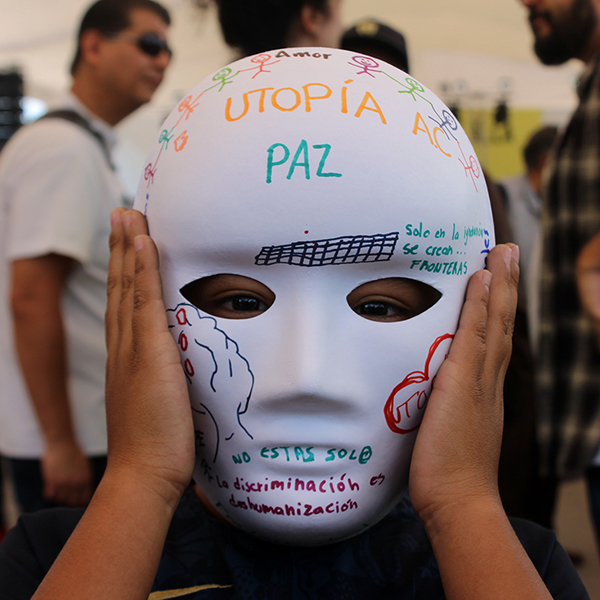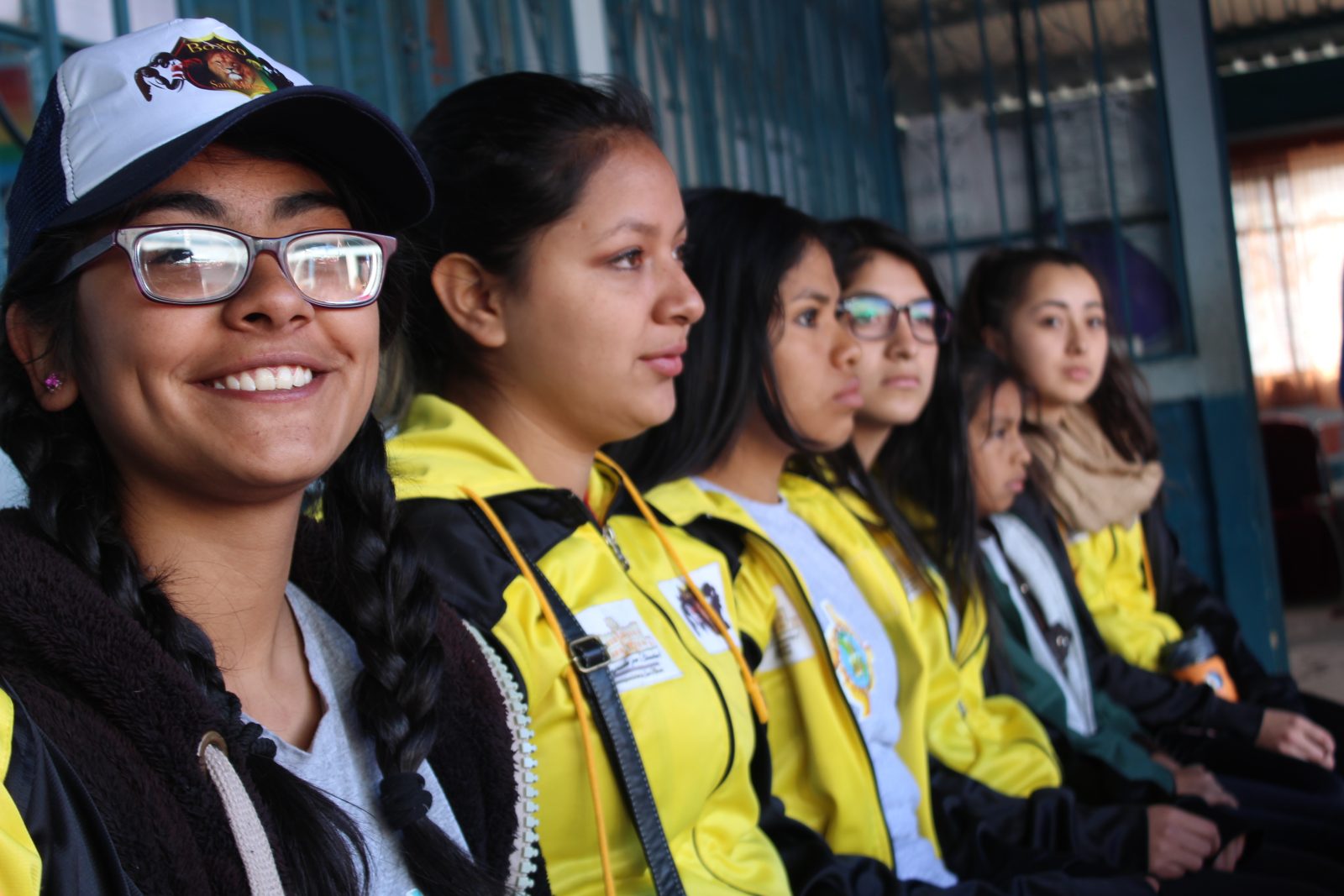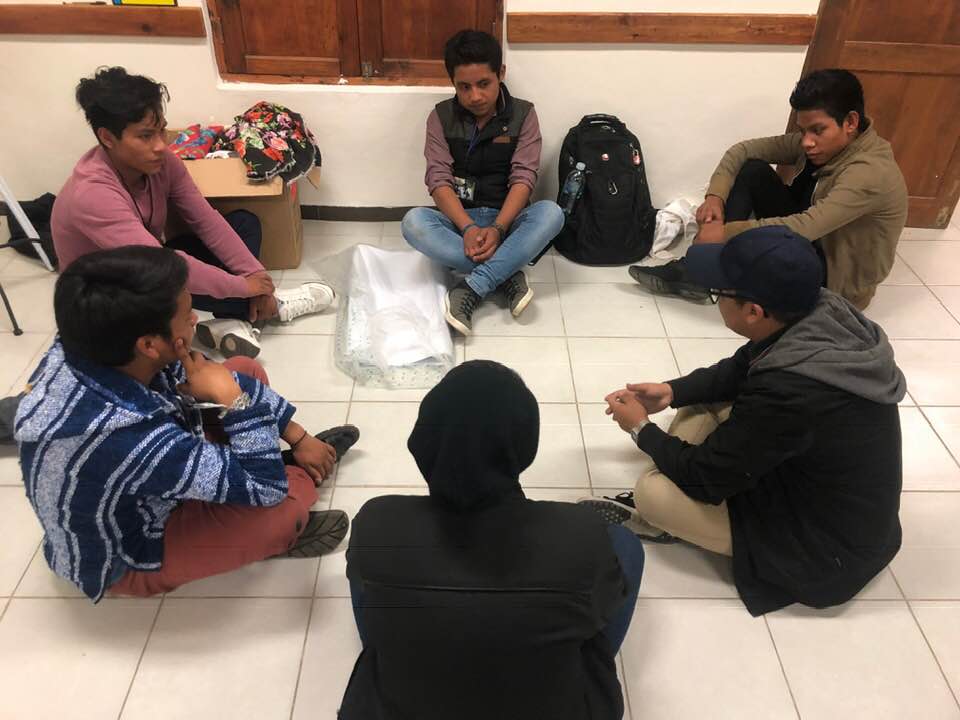Editor’s note: This story is co-written by Benjamin and GFC Program Officer Rodrigo Barraza. It is also available in Spanish.
My name is Benjamin. I am 17 years old. I live in a very famous city, a big city. Every time I tell people where I live, they reply the same way: Wow, that is awesome, I wish I could live there too!
Be careful of what you wish for, is all that I can think in that moment.
The place where I live is called Cancun, Quintana Roo. It is located in the south of Mexico and it has beautiful beaches, very nice shops to buy expensive clothes, restaurants to eat amazing food from all over the world, modern clubs to dance in until sunrise… if you have the money, of course.
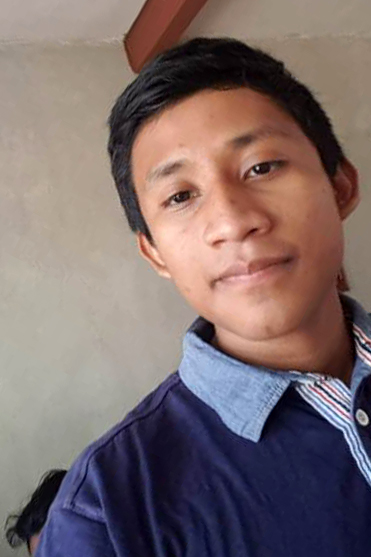
Because for me, Cancun is two different, separate worlds. One is the Cancun for tourists, full of luxury, laughter, joy, family, fun. A perfect world. A fantasy.
The other one is the real Cancun, the city that supports that fantasy. Full of people from poor places who come to make beds, to clean rooms, to cook, to sell souvenirs. To become servants. People who are always very tired and sad. People who earn almost no money and live in a Cancun full of violence, poverty, inequality.
That is the Cancun that I know. The Cancun in which I live and in which I have learned to survive.
The violence of the city reflects everywhere. Even in my own house. With my own family. My father used to beat my mom. And it didn’t stop there. There were also screams, threats, humiliations. I was scared all the time. Of the city. And of my dad.
I remember seeing all of this, but at the same time feeling that it wasn’t me who was there. For me it was like watching a television show. I did not know what to do, what to feel. I thought it was normal, that it was okay because my dad was the head of the family.
And so, I got used to violence. Violence became my own language.
We had no money. One of my worst memories of when I was younger is when my family and I were told that we had to leave our house and we went to stay with my uncles. I feel that at that moment I stopped being a child, because when you leave the house where you grew up you leave much of what you are behind. You will never be the same. It is as if you leave a piece of your heart.
My father never talked to me. It was hard for me to know how he felt. I wanted to ask him why he was always so angry, tell him he could trust me. But I never dared.
When I started high school, my father and I began to argue a lot. He told me that I could not continue studying, that education is useless, that what I had to do was work, to help with family expenses. “Working is being a man, studying is just a waste of time,” he told me.
I was so angry, so helpless … because I didn’t agree with him. I wanted to work and support my family, but I didn’t want to stop studying. Now that I think about it, and although I could never explain it to my dad, I wanted to study for two reasons:
To support my family, but really support them, not only with crumbs but by having a profession, so that we were not only surviving or moving from house to house, but working toward a better future. That’s it! I wanted to study so that my family and I had the right to a future.
And I also wanted to study for myself, to become a good person. To be able to contribute, even a little, to change all the injustices that I see every day around me. So that there is no ideal world for a few and a real and violent world for the rest of us. So we can all have our perfect world.
I love studying so much – just learning new things – that for me, a life without education is not life at all. So, when my dad told me I couldn’t go to school anymore, I felt very desperate. I felt there was no reason to live. And I decided to commit suicide.
Fortunately, my mom was close by and she saved me. She arrived just in time… I was already putting a rope on my neck.
I saw her cry like never before, not even when my dad was hitting her. And I realized that I was being a coward, and that it was not fair to cause her so much pain just because I was afraid to live. She had always been there for me, so I decided to stay here and fight, and strive to be better and take care of her every day. That was the promise I made to her. And that promise keeps me going.
From that day when I made the decision to live, to fight, to love myself, everything has been better.
A month after that episode I met the organization Centro Integral de Atención a las Mujeres (CIAM). I knew they were offering scholarships for low-income students and decided to send in an application. One of the happiest days of my life was when they told me I was accepted, that I could continue my dream.
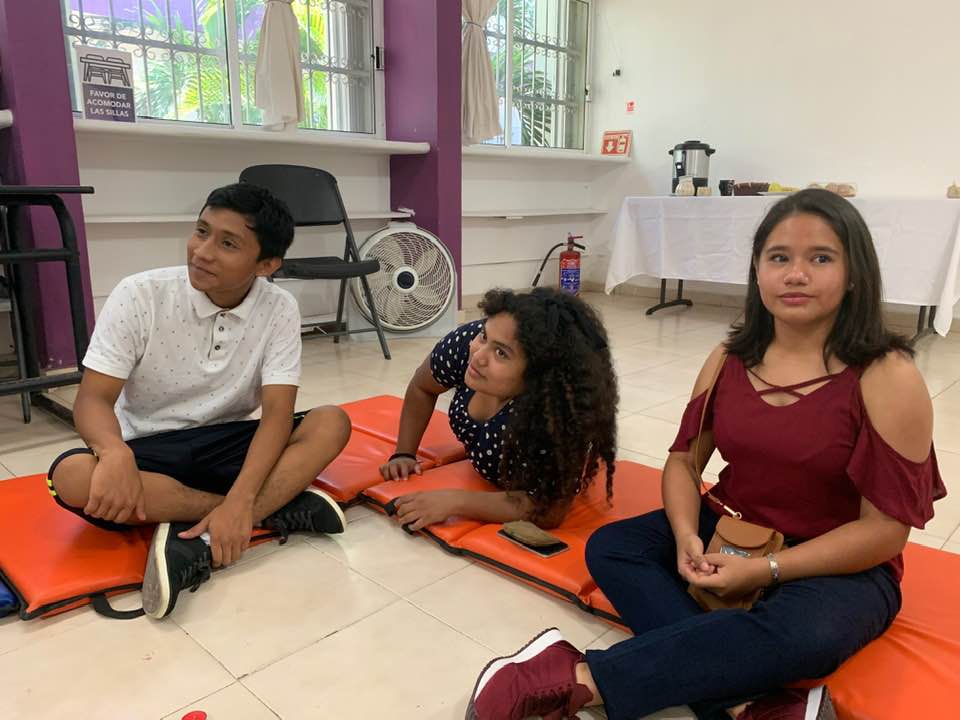
Little by little I began to get involved with the activities of the organization, especially in a program called Youth in Action. There I learned a lot about responsible sexuality and healthy masculinities. I learned to know and respect my body, and to respect the body and sexual orientation of others.
In the past I was very macho – it was normal to me, because I had to live with that every day inside my house. With CIAM I learned that it doesn’t have to be that way, that men and women are equal, and I learned to admire women’s struggle to assert their rights. I learned that just because you cope with violence every day does not mean you have to reproduce it. That, on the contrary, we all have a responsibility to end this cycle and build healthier practices between men and women. That we are the city, and we have the power to change it. And I’m not afraid anymore.
For the first time in my life I feel heard, understood. And I have begun to express myself more and more. CIAM has helped me build the best version of myself.
For some, life is easier. For others it is a constant struggle. And you can’t choose the life you receive, but you can build the life you want to have. And thanks to CIAM I feel that I am on that path.
To other young people like me, I say to you that we have the power to change our lives and our community. You don’t have to be afraid to express yourself, to be free, to have an opinion. Feel proud of who you are. This is how you change the world.
I want to be an accountant one day and change my neighborhood and my city so that young people can live happily, safely, with joy, with freedom. I want to help people to have more options than the ones I had.
And you? Have you thought about what you want to be? How do you want to improve your life and your community?
Centro Integral de Atención a las Mujeres (CIAM) was founded by a nationally acclaimed journalist, Lydia Cacho, in 2001. Born in Mexico City, Cacho became famous for dismantling a network of child traffickers who held positions in the Mexican government and for her work defending women’s human rights in Quintana Roo. After its founding, CIAM served as a shelter for victims of violence, trafficking, and gender-based violence for ten years before switching its mission to focus on peace education and violence prevention. The legacy of the shelter’s work led to CIAM having closer community relations and greater knowledge about the dynamics of the community and trends of violence against women and children in the state.
CIAM’s center for peace education focuses on gender-based violence prevention and changing gender attitudes to benefit not only women and children but men. CIAM prioritizes raising awareness among children and youth, based on the belief that violence can only be reduced if new generations are conscious of its adverse effects.
Header photo: A mural made by CIAM staff.
